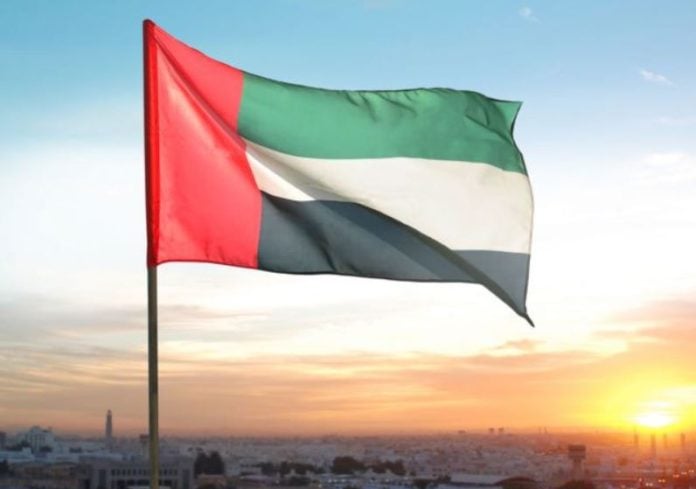Each year brings in a new set of reforms in every society and 2023 seems to be coming up with new laws as well when it comes to United Arab Emirates (UAE).
As of now, there are around 5 new laws that would be implemented next year including Emiratisation targets for companies and imposition of the plastic ban across more areas.
Let’s go through these laws to see what’s new in store for those seeking immigration to the United Arab Emirates.
1. Mandatory job insurance
Starting from January, 2023, purchasing insurance against job loss has been made mandatory for employees working in the private sector and federal government departments
The few exemptions to the insurance include investors and business owners who own and manage their business themselves, domestic workers, employees on a temporary basis, juveniles under the age of 18 and retirees who receive the pension and have joined a new employer.
As per the details, workers with a basic salary of Dh16,000 or less will need to pay a monthly insurance premium of Dh5, i.e. Dh60 per annum while the compensation for this category would not exceed a monthly amount of Dh10,000.
For those who earn basic salary exceeding Dh16,000 will need to pay Dh10 per month, i.e. Dh120 annually while compensation for this category must not exceed Dh20,000 monthly.
Flexibility has been introduced in a sense that the employees can choose to pay the premium on a monthly, quarterly, half-yearly or annual basis and may coordinate with the insurance company to get additional benefits.
The scheme will be offered by the Dubai Insurance Company, which is the representative of the insurance pool comprising nine companies.
Workers have multiple options to subscribe including through the insurance pool’s website (www.iloe.ae) and smart application, bank ATMs and kiosk machines, business service centres, money exchange companies, du, Etisalat and SMS.
As far as the timeline is concerned, the worker must submit the claim within 30 days from the date of his/her unemployment. The insurance company has two weeks from receiving the claim to transfer the compensation to the insured’s account; the compensation will be paid for 3 months or until the employee finds a job, whichever is earlier.
2. Corporate tax
The government of UAE would be imposing a corporate tax starting June, 2023 with firms posting Dh375,000 profit per annum to pay 9% tax.
The tax will be levied on the profit and not on the total turnover of the company and will not be applicable to the salary of the residents.
The Corporate Tax will apply to all businesses and individuals conducting business activities under a commercial licence in the UAE as well as free zone businesses (The UAE CT regime will continue to honour the CT incentives currently being offered to free zone businesses that comply with all regulatory requirements and that do not conduct business set up in the UAE’s mainland.)
Moreover, it will be imposed on foreign entities and individuals only if they conduct a trade or business in the UAE in an ongoing or regular manner.
Banking operations and businesses engaged in real estate management, construction, development, agency and brokerage activities would have to pay the tax as well.
Exemptions from the tax
Businesses engaged in the extraction of natural resources are exempt from the tax as these businesses will remain subject to the current Emirate level corporate taxation.
Moreover, dividends and capital gains earned by a UAE business from its qualifying shareholdings will be exempt from the tax. On the same lines, qualifying intra-group transactions and reorganizations will not be subject to the tax, provided the necessary conditions are met.
The corporate tax will not apply to an individual earnings salary and other employment income, whether received from the public or the private sector
It will not be levied on interest and other income earned by an individual from bank deposits or saving schemes.
Moreover, a foreign investor’s income earned from dividends, capital gains, interest, royalties and other investment returns are also exempted.
Investment in real estate by individuals in their personal capacity are also out of the purview of the tax as well as dividends, capital gains and other income earned by individuals from owning shares or other securities in their personal capacity.
3. Emiratisation target
Under this reform, it is mandatory for companies with more than 50 employees to achieve an Emiratisation rate of 2% for skilled jobs to avoid penalties. Emiratisation means hiring of an Emirati in the company.
Starting from January 2023, non-compliant companies will face financial penalties and a monthly fine of Dh6,000 will be imposed for every UAE national that has not been appointed.
A tweet by ‘Nafis’ confirmed that the private sector companies are required to increase their emiratisation target by 2 percent annually.
Nafis is a federal programme to increase the competitiveness of Emirati human resources and empower them.
The reform has been introduced in a manner that if a UAE citizen employed by a private company resigns, the firm will have to recruit an Emirati to meet the Emiratisation target.
Companies that successfully achieve Emiratisation targets will also receive major incentives as the UAE said in May that it would cut some worker permit fees for private sector companies that voluntarily exceed Emiratisation targets.
4. Personal status law
New personal status law on all non-Muslim foreigners will come into effect from February 1, 2023 and the provisions will apply to non-Muslim foreigners residing in the country unless someone adheres to the application of his/her country’s law.
Non-Muslim foreigners may agree to implement other legislations on family or personal status in force in the UAE instead of the provisions of this Decree-Law.
The new law also covers the marriage conditions and the procedure of contracting and documenting the marriage before the competent courts. Besides that, it also specifies the procedure of divorce that can be initiated jointly or unilaterally.
The procedure for settling the financial claims after divorce and the arrangement of joint custody for the children has also been organized under this law.
Lastly, the law organises the procedure for inheritance and testaments (wills) and proofs of paternity.
It must be kept in mind that Abu Dhabi has issued a law (No. 14 of 2021) concerning personal status for non-Muslims foreigners to provide a flexible and advanced judicial mechanism for the determination of personal status disputes amongst non-Muslims.
5. Plastic ban
Located on the western coast of the United Arab Emirates, Ajman will ban single-use plastics from January 2023 alongside Umm Al Quwain.
The Executive Council of the Emirate of Umm Al Quwain had already state that all bags must be biodegradable, multi-use or made of paper or woven cloth.
Sale outlets are likely to charge 25 fils extra per plastic bag shoppers use as of next year on the same pattern as in Abu Dhabi, Dubai, and Sharjah.














